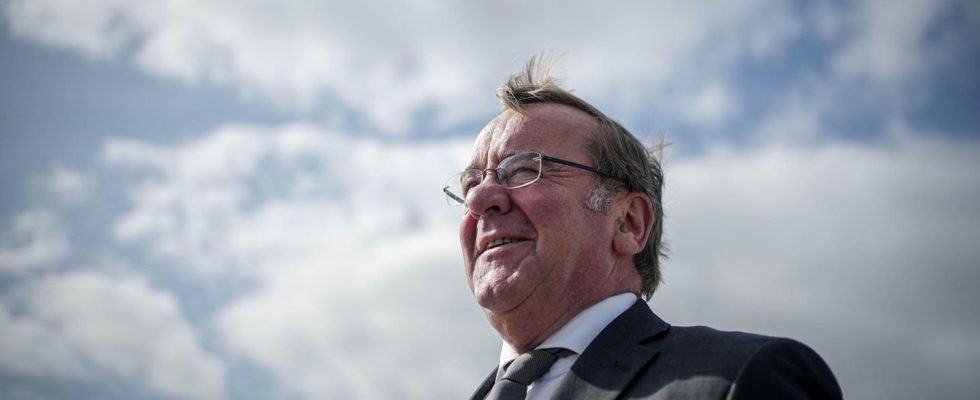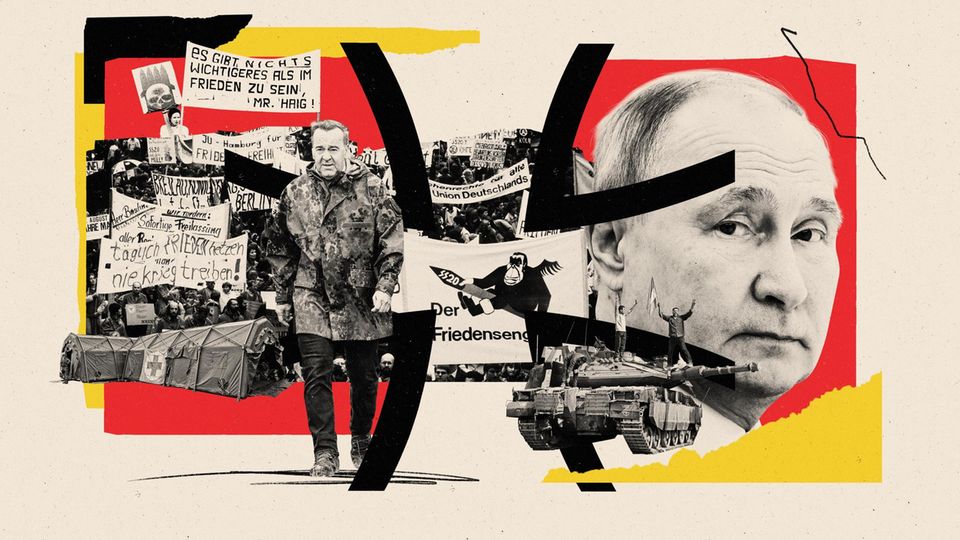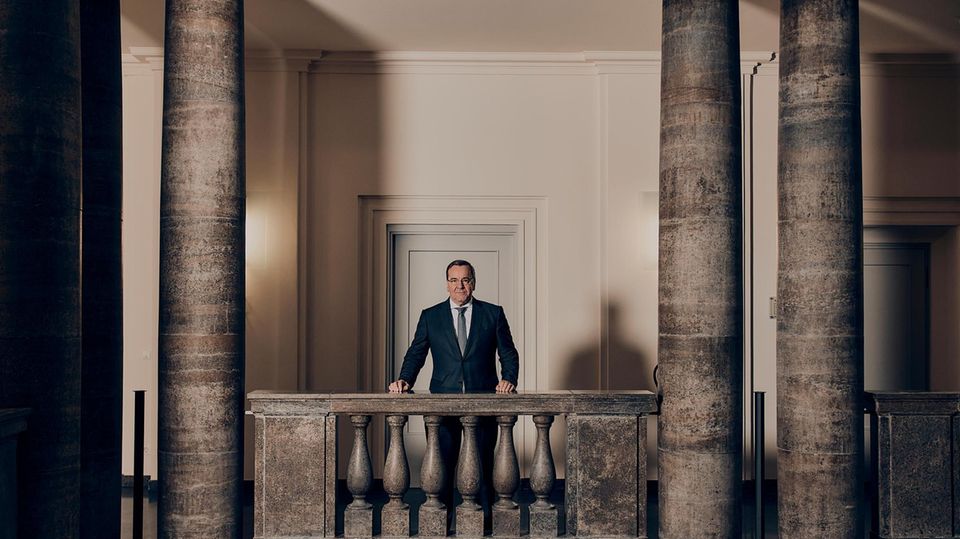Reserve Chancellor?
Three reasons for the Pistorius hype – and three catches
Federal Defense Minister Boris Pistorius (SPD)
© Kay Nietfeld / DPA
Popular, approachable, engaging: Boris Pistorius seems to be everything that Olaf Scholz is not. The defense minister is already being treated as reserve chancellor. But the hype has its pitfalls.
Three reasons for the Pistorius hype…
Pistorius, the projection surface. The Defense Minister is “up for the job” in the Bendlerblock, as he said shortly after taking office, and people are noticing that. Boris Pistorius comes along, speaks plainly and shows his edge. He has little to do with the regular fights between his cabinet colleagues – because no one wants to fight with him. About what? There is (for once) consensus in the coalition that the Bundeswehr needs to be modernized and strengthened, including financially. And the Defense Minister is making many adjustments without making any major mistakes. The traffic light gets lost in arguments, Pistorius prefers to work – that’s the impression. This also bothers the citizens, who see him as a kind of projection screen: It’s possible! As a result, the Defense Minister has been leading the list of most popular politicians for months and, according to a “Bild” survey, is even the more desirable chancellor than incumbent Olaf Scholz.
Contrast to Scholz. Charisma? Unfortunately the Chancellor doesn’t. You can regret it, but you have to accept it, “you” in the sense of voters and your own people. Of course, politics is primarily a craft, but opposition leader Friedrich Merz recently vividly reported on the qualities of the plumber of power. In addition, politics is of course communication – when it comes to this discipline, too, everything essential about the Chancellor has been complained about for a long time. But politics is also always a performance – a little bit Obama, Kennedy, at least Gerhard Schröder in earlier days. It’s the appearance, the briefcase-like, the know-it-all, the mousy and the provocative phlegm – all qualities that no one would ever associate with Boris Pistorius. The Minister of Defense speaks in a firm voice, loud and clear and deep; As absurd as it may sound, he always wears the right shoes and leaves a lasting impression not only in the military environment, but also in that part of the population that longs for attitude, direction and yes, that too, stronger leadership.
The jerk effect. Changes in personnel always have an invigorating effect, Pistorius himself is the best example of this. Since he took over the defense department from Christine Lambrecht, his house is no longer considered a bankrupt ministry. This is also why some comrades secretly dream of Pistorius moving to the Chancellery. A new beginning, a break, a wake-up call: all sorts of things could be said with it, including to the voters. Whether it’s a party or a traffic light, everyone could hope for new momentum, that’s the calculation. How else is it supposed to come about? Isn’t the situation so desolate and Scholz so irreparably damaged that only an earthquake will help? People in the Chancellery are almost amused by these speculations. There are still almost two years until the next federal election, and Scholz has stabilized himself in every crisis. But the patience in his party, as can be felt these days, is dwindling.
…and three hooks on it
How could Pistorius become chancellor? It probably wouldn’t be that easy. Formally, the fastest way would be if Olaf Scholz resigned, like Willy Brandt did almost exactly 50 years ago because of the Guillaume affair. The traffic light coalition would then have to agree on a new candidate. But that might not be that easy. The FDP and the Greens would first have to expect discussions as to whether they even want to continue the traffic lights. And even in the SPD, unrestricted support for Pistorius would not be certain. Parliamentary group leader Rolf Mützenich was recently not enthusiastic about the defense minister’s demand that Germany must become “war-ready”. Unlike Herbert Wehner in 1974, the current parliamentary group leader is considered loyal to the incumbent Chancellor.
However, if the SPD, Greens and FDP ultimately come to an agreement, Federal President Frank-Walter Steinmeier would have to propose the election of Pistorius to the Bundestag. The fact that the minister is not a member of the Bundestag would not be a problem. Kurt-Georg Kiesinger, Chancellor of the first grand coalition from 1966 to 1969, also did not have a Bundestag mandate, but was previously Prime Minister in Baden-Württemberg. Helmut Schmidt was elected from the Bundestag in 1974 nine days after Brandt’s resignation. However, the opposition, namely Friedrich Merz and the Union, would see Scholz’s resignation as a failure of the traffic light as a whole and would call for new elections. But the Chancellor’s resignation was not enough. Rather, Scholz would have to ask the vote of confidence in parliament – and lose. Only then can the Federal President dissolve the Bundestag and call new elections.
Let’s assume that… Does he even want to? Apart from the, let’s say: modalities, another factor is crucial: the will to power and the willingness to subordinate everything to this claim. “I want in there!” – Gerhard Schröder already knew this during his Juso days, when he shook the fence of the Chancellery after a pub crawl. Pistorius is currently not showing this urge. “I came into this position when I was almost 63,” he said at the end of last year star-Interview, for him it was “not a springboard for higher tasks”. He doesn’t have to use tactics or avoid sensitive topics out of consideration for his career. Instead, he could take care of the “many important tasks.” “It’s not an easy position. And yet I have it easier than others because I don’t have the baggage of further ambitions to carry around with me.” If you believe this account, Pistorius would have to be carried into the Chancellery, so to speak. It is unlikely that Scholz would do that (see above).
The traffic light is still the traffic light. Even a Chancellor Pistorius would not exist in a vacuum. There are two more: the Greens and the FDP. Even if he satisfied the SPD’s longing to take more action and make an announcement, it is questionable whether he could tame the traffic light disputes that were brought to the outside world. For two years, despite protestations to the contrary, the traffic light has failed to create an impression of unity: the differences in basic political beliefs are too great. The situation has become even worse since the government lost its funding base following a ruling by the Federal Constitutional Court. Even if the budget for 2024 is now in place, the coming one is unlikely to be any less difficult. Or to put it another way: Just because the Chancellor is different, the FDP will not suddenly say goodbye to the debt brake. And, oh well, there was something else: the state elections in Saxony, Thuringia and Brandenburg would of course still take place even if the Chancellor were named Pistorius. Given the current survey results, panic can break out at the traffic lights.



